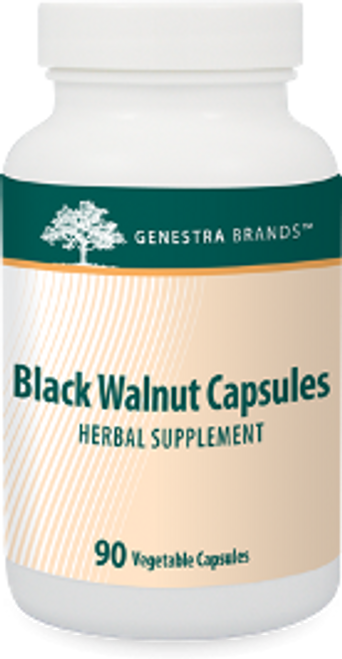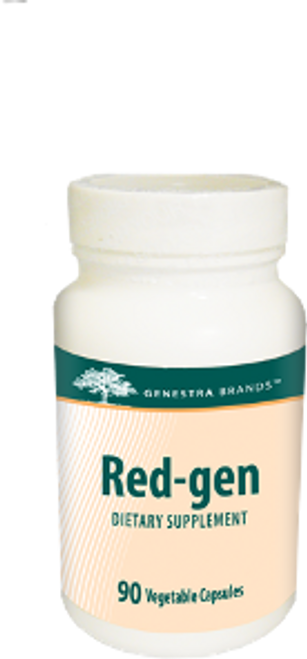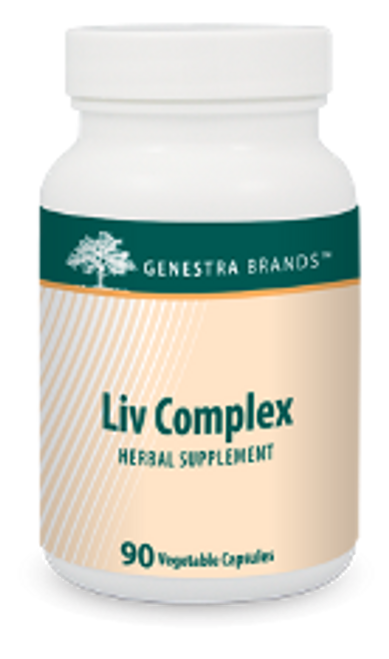Product Overview
Genestra Multi EFA Capsules- 90 vegetable capsules
• Natural source of essential fatty acids • Contains 861 mg of omega-3 and EFAs from anchovy, sardine fish oils, flaxseed oil and borage oil per dose • Support neurological and cardiovascular health • Purity guaranteed • No artificial colors, flavors or preservatives
Multi EFA Capsules is a unique blend of fish oils, flax and borage to specifically support cognitive health brain function and to maintain overall cardiovascular health (1). Flaxseed oil and borage oil provides EFAs for the maintenance of good health (2),(3) . Multi EFA Capsules provides Eicosapentaenoic Acid (EPA), Docosahexaenoic Acid (DHA), Alpha-Linolenic Acid (ALA), Gamma-Linolenic Acid (GLA), Linoleic Acid (LA) and Oleic Acid (OA).
References: 1. NHPD Monograph on Fish Oil. March 2009. 2. NHPD Monograph on Flaxseed Oil. April 2010. 3. NHPD Monograph on Borage Oil. June 2009.
Additional product info: Fish oils may improve cardiovascular health by altering lipid metabolism, inducing haemodynamic changes, decreasing arrhythmias, modulating platelet function, improving endothelial function and inhibiting inflammatory pathways (4). In fact, fish oil is recognized by the NHPD of Health Canada to help support and maintain cardiovascular health (1). Eicosapentaenoic acid (EPA; 22:5n-3) and docosahexaenoic acid (DHA; 22:6n-3) are the two principal omega-3 fatty acids in marine oils. Recent data from human studies showed that these two fatty acids have different effects on serum lipids, lipoproteins, serum glucose, blood pressure, heart rate and endothelial function (5). Studies also showed that EPA (1.6 grams daily) and DHA (1.2 grams daily) generate bioactive lipid mediators that reduce inflammation and polymorphonuclear leukocyte recruitment in numerous inflammatory disease models (6),(7) . While both EPA (2.2-4.8 grams per day) and DHA (2.3-4.9 grams per day) decrease TAG levels, only DHA appears to increase HDL and LDL particle size. Evidence to date also suggests that DHA is more efficient in decreasing blood pressure, heart rate and platelet aggregation compared to EPA (8). EPA (4 grams daily), but not DHA (4 grams daily), appears to increase fasting glucose concentrations (9). Thus, reduction of postprandial triacylglycerol (TG) concentration may be cardioprotective. Studies have shown that chronic omega-3 fatty acid supplementation (4 grams EPA or 4 grams DHA daily) significantly lowers postprandial TG concentrations regardless of the type of fat in test meal (10).
EPA and DHA are also crucial to brain development and normal brain functioning. DHA is particularly important to brain functioning due to its influence on neural membrane properties, which modulate cell signalling. DHA concentration in the brain decreases with age in humans and this has been postulated to be consequential to the age-related deterioration in central nervous system functions (11). Fish oil supplementation helps support cognitive health and brain function (12).
Flaxseed contains 35% of its mass as oil, of which 55% is alpha-linolenic acid (ALA) (13). Human studies have shown that flaxseed oil (approximately 4 tablespoons/day) can modestly reduce serum total and low-density lipoprotein cholesterol concentrations, reduce postprandial glucose absorption, decrease some markers of inflammation, and raise serum levels of the omega-3 fatty acids, ALA and eicosapentaenoic acid (14). The compliance or elasticity of the arterial system, an important index of circulatory function, diminishes with increasing cardiovascular risk. Systemic arterial compliance has been shown to improve through eating of fish and fish oil. Similarly, enhanced arterial compliance was reported following 4 weeks of flaxseed oil supplementation (equivalent of 20 grams ALA daily), in obese patients (15). Finally, flaxseed oil decreases platelet aggregation and increases platelet activating inhibitor-1 and bleeding time (16).
Borage seed oil is from Borago officinalis and contains a high amount of the essential omega-6 unsaturated fatty acid gamma-linolenic acid (GLA). The beneficial effect of borage seed oil on plasma lipids is prominent. Supplementation of borage oil for twelve weeks, alone (2 g GLA/day) or in combination with other fatty acids (2 grams GLA+STA+EPA/day) induced significant changes in the fatty acid composition of the immune cells of healthy adults (18). Borage oil, fish oil, and their combination (3.5 gm omega-3 fatty acids daily in a 2.1 gm EPA/1.4 gm DHA ratio, 1.8 gm/d GLA, or 7 fish oil and 6 borage oil combined) have exhibited improvement in the lipid profile at 9 and 18 months. These treatments significantly reduced total and LDL-cholesterol and triglycerides, increased HDL-cholesterol, and improved the atherogenic index (19).
References: 4. Cottin SC, Sanders TA, Hall WL. The differential effects of EPA and DHA on cardiovascular risk factors. Proc Nutr Soc. 2011 May;70(2):215-31. Abstract: Page 225 Conclusionn 5. Woodman RJ, Mori TA, Burke V, Puddey IB, Watts GF, Beilin LJ. Effects of purified eicosapentaenoic and docosahexaenoic acids on glycemic control, blood pressure, and serum lipids in type 2 diabetic patients with treated hypertension. Am J Clin Nutr. 2002 Nov;76(5):1007-15. Page 1007, Introduction 6. McDaniel, J.C., Massey, K. and Nicolaou, A. Fish oil supplementation alters levels of lipid mediators of inflammation in microenvironment of acute human wounds. Wound Repair Regen. 2011 Mar-Apr;19(2):189-200. Page 189, Abstract & Introduction 7. van der Meij, B.S., Langius, J.A., Smit, E.F., Spreeuwenberg, M.D., von Blomberg, B.M., Heijboer, A.C., Paul, M.A. and van Leeuwen, P.A. Oral nutritional supplements containing (n-3) polyunsaturated fatty acids affect the nutritional status of patients with stage III non-small cell lung cancer during multimodality treatment . J Nutr. 2010 Oct;140(10):1774-80. Page 1775, 2nd paragraph 8. Cottin SC, Sanders TA, Hall WL. The differential effects of EPA and DHA on cardiovascular risk factors. Proc Nutr Soc. 2011 May;70(2):215-31. Abstract: Page 225, Conclusion 9. Woodman RJ, Mori TA, Burke V, Puddey IB, Watts GF, Beilin LJ. Effects of purified eicosapentaenoic and docosahexaenoic acids on glycemic control, blood pressure, and serum lipids in type 2 diabetic patients with treated hypertension. Am J Clin Nutr. 2002 Nov;76(5):1007-15. Page 1007, Introduction 10. Park, Y. and Harris, W.S. Omega-3 fatty acid supplementation accelerates chylomicron triglyceride clearance. J Lipid Res. 2003 Mar;44(3):455-63. Page 455, Introduction 11. Danthiir V, Burns NR, Nettelbeck T, Wilson C, Wittert G. The Older People, Omega-3, and Cognitive Health (EPOCH) trial design and methodology: A randomised, double-blind, controlled trial investigating the effect of long-chain omega-3 fatty acids on cognitive ageing and wellbeing in cognitively healthy older adults. Nutr J. 2011 Oct 20;10(1):117. Page 2, Background, 2nd paragraph 12. NHPD Monograph on Fish Oil. March 2009. 13. Prasad K. Flaxseed and cardiovascular health. J Cardiovasc Pharmacol. 2009 Nov;54(5):369-77. Page 369, Abstract; Page 369, Flaxseed and its Components; Page 375, Conclusion 14. Bloedon LT, Szapary PO. Flaxseed and cardiovascular risk. Nutr Rev. 2004 Jan;62(1):18-27. Page 18, Abstract; Page 19, Mechanisms of action 15. Nestel PJ, Pomeroy SE, Sasahara T, Yamashita T, Liang YL, Dart AM, Jennings GL, Abbey M, Cameron JD. Arterial compliance in obese subjects is improved with dietary plant n-3 fatty acid from flaxseed oil despite increased LDL oxidizability. Arterioscler Thromb Vasc Biol. 1997 Jun;17(6):1163-70. Page 1163, Abstract 16. Prasad K. Flaxseed and cardiovascular health. J Cardiovasc Pharmacol. 2009 Nov;54(5):369-77. Page 369, Abstract; Page 369, Flaxseed and its Components; Page 375, Conclusion 18. Miles EA, Banerjee T, Dooper MM, M'Rabet L, Graus YM, Calder PC. The influence of different combinations of gamma-linolenic acid, stearidonic acid and EPA on immune function in healthy young male subjects. Br J Nutr. 2004 Jun;91(6):893-903. Page 901, 2nd paragraph 19. Olendzki BC, Leung K, Van Buskirk S, Reed G, Zurier RB. Treatment of rheumatoid arthritis with marine and botanical oils: influence on serum lipids. Evid Based Complement Alternat Med. 2011;2011:827286. Page 1, Abstract; Page 5, Results, 2nd & 3rd paragraphs; Page 5, Discussion; Page 7, Conclusion
Other ingredients: gelatin, glycerin, purified water, natural mixed tocopherols








